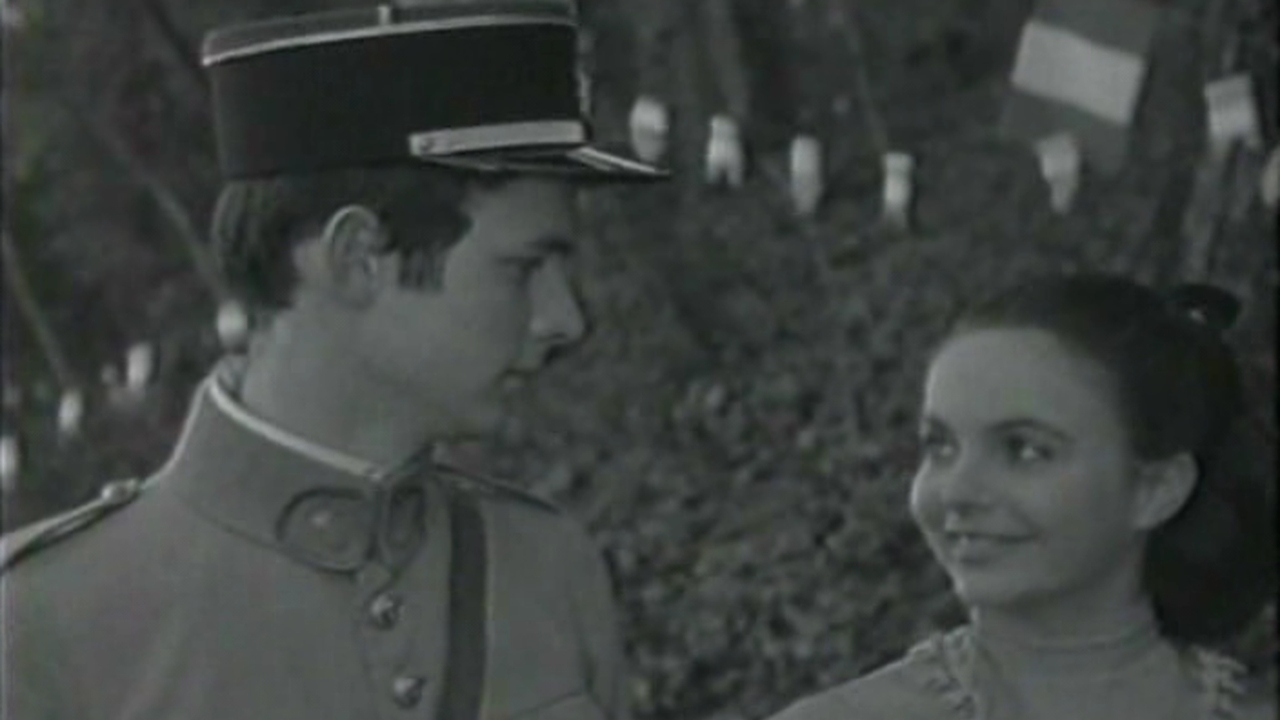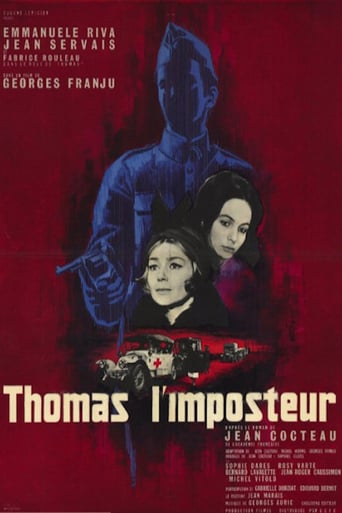

Jean Cocteau's most famous films, La belle et la bete, and Orphee, are both cinematic dreams, featuring excursions into the realms of, respectively, the Fairy Tale and the Underworld. (Cocteau would refer to Death as his 'mistress'.) His novel Thomas l'imposteur appeared in 1923, and was based in part on his experiences as an ambulance driver on the Belgian front during the Great War. The story, set in France during the First World War, is about a group of wealthy Parisians who, led by Clémence de Bormes, a widowed princess, bring some action into their boring everyday lives by transforming her palace into a hospital and organising an ambulance convoy to the devastated countryside. Clémence and her daughter Henriette make the acquaintance of Thomas Guillaume de Fontenoy, an exalted young man (actually an "imposter" for two reasons: i) he wears a fake uniform and pretends to be the nephew of a famous general; ii) aged only 16 he would anyway be too young to fight) who offers to join the charity group as a helper. Very soon the realities of war intrude and whilst Clémence is gradually infatuated by Guillaume, Henriette falls in love with him.Georges Franju's film of Thomas l'Imposteur came to the screen in 1965, two years after the death of Jean Cocteau. I feel that Cocteau would have approved. The voice-over narrative is supplied by Jean Marais, Cocteau's longtime collaborator and lover. The music is by Georges Auric, who composed also for La belle et la bete and for Orphee. As befits both its source material and its director, the film has a sense of unreality which is maintained even as it reaches its too realistic, tragic climax.This is a war film from the tradition of a poetic cinema. See it if you can.
... View MoreIt was the last interesting movie by Georges Franju whose "les Yeux Sans Visages" is known world-wide .It was also the second time he had used Emmanuelle Riva ,one of the best actresses of the French cinema.I've got the strange feeling that Riva was so gifted a thespian French directors were afraid of her.Riva had been a perfect "Thérèse Desqueyroux" two years before.She portrays a princess,who ,during WW1,like rich idle women ,(see also in Martin Du Gard's "les Thibault" the character of Madame De Fontanin )transformed her town house into a hospital for the persons who were wounded in the war.Young officer Thomas helps her: actually ,the boy could not enlist,he is not really a soldier, for he is only sixteen (hence the title of the movie:"the impostor").George Franju used to say:"Thomas is not a hero(..)He is an adventurous dreamer who is living in a world which is the opposite of the world of his dream.And war is realistic and unfortunately dirty."Franju's flair for strange atmosphere and his sense of mystery are still intact ,"Thomas " is his last great movie and his directing is often dazzling:-a galloping horse with its mane on fire in a deserted village..-the flat beaches of the North Sea where land and water are as one...-the ambulances going through the night with a short shot of Edith Scob's face ....Humor is also present: a warmonger chanting "La Marseillaise " and a soldier saying "what's that?I dunno.And last but not least ,this scene Luis Bunuel might have loved : a priest opening the lips of a dead soldier with a knife to slip a host into his mouth!Today "Thomas " ,which was made two years after Cocteau's death is an overlooked movie ;and that Franju thought the Nouvelle Vague guys were b....... didn't help matters!Let's mention once againthe outstanding talent of Mrs Riva ,who ,after "Therese Desqueyroux" gives a superlative performance ;she's always been one of my favorite French actresses and even when the movie is mediocre (recently "Le Grand Alibi" ) ,she manages to make the best of it.Her young co-star ,Fabrice Rouleau(Raymond Rouleau's son ,he died in 2001) has fallen into oblivion but he was the young man with the child in his eyes ,a child who refuses to grow up and a forerunner of the young hero of "Die Blechtrommel" ("the tin drum").
... View More